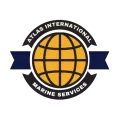
South Africa is gearing up to implement the Maritime Single Window (MSW) system, a significant step towards digitalizing maritime operations.
This initiative aligns with the International Maritime Organization’s (IMO) mandate, which requires all member states to adopt MSWs by January 1, 2024.
This blog explores the key aspects of South Africa’s plans, the benefits of MSWs, and the challenges that lie ahead.
What is a Maritime Single Window?
A Maritime Single Window (MSW) is a digital platform designed to streamline the exchange of information between ships and port authorities.
It allows for the electronic submission of data required for the arrival, stay, and departure of vessels, thereby simplifying and expediting maritime operations.
The MSW acts as a one-stop gateway, eliminating the need for multiple systems and interfaces.
The Global Mandate
The IMO has mandated that from January 1, 2024, all ports worldwide must operate MSWs for the electronic exchange of information.
This move is seen as a significant step towards accelerating digitalization in maritime trade and is expected to bring numerous benefits to the industry.
The IMO has also organized various initiatives and workshops to support member states in their MSW implementation journey.
South Africa’s Plans
South Africa is actively laying the groundwork for its MSW system.
A recent workshop examined the key requirements of the International Convention on Facilitation of International Maritime Traffic (FAL Convention) concerning the digitalization of ship clearance processes at ports.
Discussions also explored potential challenges and success factors in developing an MSW in South Africa.
Benefits of MSWs
The introduction of the MSW platform promises several benefits for the maritime industry:
- Streamlined Document Submission: The MSW simplifies the process of submitting documents, reducing the time and effort required.
- Reduction in Clearance Delays: By enabling faster and more efficient data exchange, the MSW helps in reducing clearance delays.

- Cost Savings: The digital platform can lead to significant cost savings by eliminating the need for paper documents and reducing administrative overheads.
- Enhanced Efficiency: The MSW improves the overall efficiency of maritime operations by providing a single point of entry for all required information.
- Environmental Sustainability: The reduction or elimination of paper documents contributes to environmental sustainability by decreasing the demand for logging and deforestation.
Challenges and Considerations
Despite the numerous benefits, the implementation of MSWs is not without challenges:
- Interoperability Issues: Ensuring that different systems can work together seamlessly is a significant challenge.
- Aging Technologies: Many existing systems are outdated and may not be compatible with the new digital platform.
- Coordination Among Stakeholders: Harmonizing the efforts of various stakeholders, including government agencies, port authorities, and shipping lines, is crucial for the success of the MSW.
- Cost and Infrastructure: The cost of implementing the MSW and upgrading existing infrastructure can be a barrier.
- Training and Capacity Building: Adequate training and capacity-building initiatives are essential to ensure that all stakeholders can effectively use the new system.
In Summary,
The implementation of the Maritime Single Window system in South Africa is a transformative step towards modernizing maritime operations.
While the journey is fraught with challenges, the potential benefits in terms of efficiency, cost savings, and environmental sustainability make it a worthwhile endeavor.
As South Africa continues to lay the groundwork for its MSW, it will be essential to address the challenges and leverage the opportunities that this digital transformation presents.
By embracing the MSW, South Africa is not only complying with international mandates but also positioning itself as a forward-thinking player in the global maritime industry.
The successful implementation of the MSW will undoubtedly enhance the country’s maritime operations, making them more efficient, cost-effective, and sustainable.
—
Found this article interesting, and useful? Please feel free to interact, recommend and share.
If you have any questions about this topic or would like to discuss your own business needs, please contact us today!
